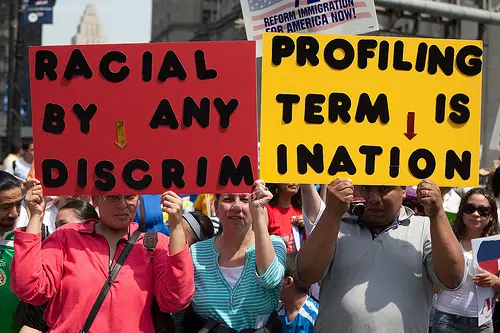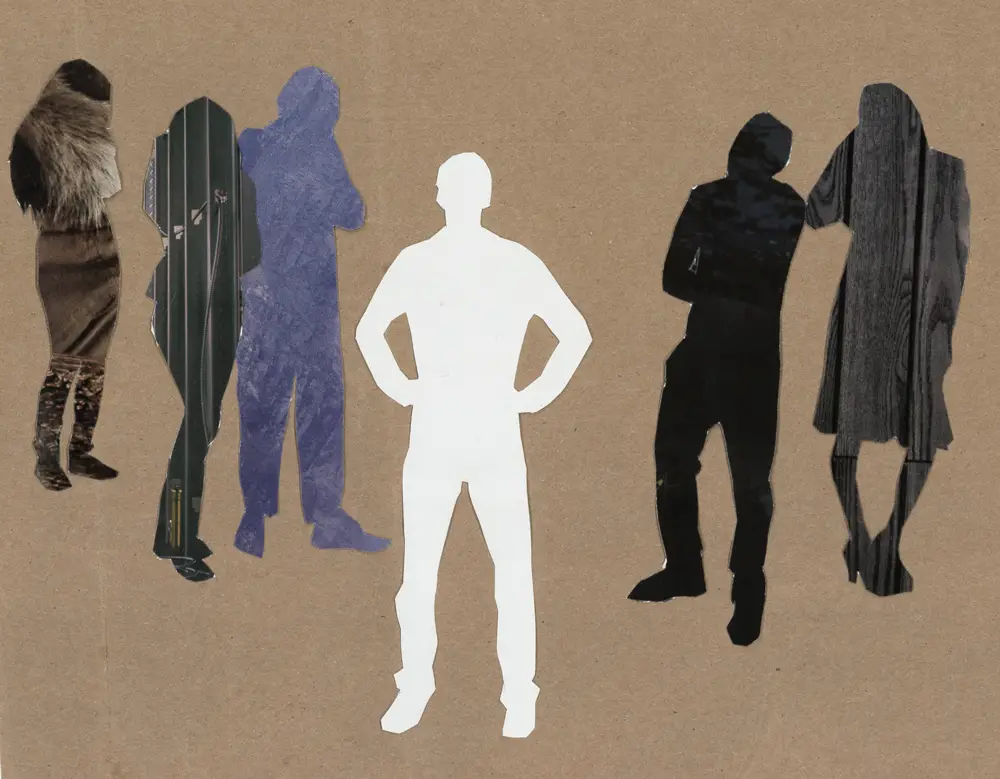White privilege is like the air you breathe: You don’t notice it until it suddenly becomes unavailable, or it never applied to you in the first place. There’s a quiz out there for everything, and recently, I stumbled upon one from “Buzzfeed” that helps determine how privileged you are based on your answers to a series of statements, like “I’ve never been homeless” or “I’ve never been the only person of my race in a room.” Once you’re done, you’re presented with a score of how well-off you are.
But, I don’t need an online quiz (especially one that’s not that great) to tell me how privileged I am. I’m white and middle- to upper-middle class. I don’t have to take out student loans to get a public college education, and I didn’t have to get a job during high school to make ends meet. I’ve never been forced to think about privilege, because it is something that I have always had, even if I wasn’t consciously aware of it. I certainly don’t understand what it’s like to not be white, and how could I? No matter how much I attempt to remain “in the know” and aware of social issues, or how justly I try to live my life, there is no way I will ever truly understand what it is like to walk in the shoes of someone who is not white. End of story.

But, I do, as a female, understand what it’s like to be part of a marginalized community. It’s frustrating when a group of obviously privileged individuals sincerely believe that injustice does not exist, simply because they are not forced to deal with it on a day-to-day basis. White privilege is everywhere. It’s feeling welcomed in all walks of life, not having the pressure to “represent” your race in everything you do or taking for granted the everyday products and media that were already geared toward you the second they were made.
Recognizing the prevalence of white privilege is essential in establishing a deeper understanding of the social change that needs to occur. For every instance in which white privilege is (rightfully) acknowledged, there is a counterattack in the all-too-common phrase “not all white people are privileged,” which is a clear misinterpretation of the term.
Yes, there are minorities who, for lack of a better phrase, defy the odds to achieve success. And yes, there are white individuals who do not necessarily hold the marks of the traditional white socioeconomic status. But, this privilege is something far more than what can simply be seen by the eyes. It’s knowing that you will always be given the benefit of the doubt or that you belong to a group of well-respected individuals, regardless of how you act. And, although many are reluctant to accept their status as someone privileged in the United States, doing so is essential when coming to terms with the significance of such a role.
In 1988, Peggy McIntosh published “White Privilege: Unpacking the Invisible Knapsack,” which described white privilege as a number of unearned assets that a white individual, in America, could cash in on without even realizing it, such as protection of rights, standards of dress and the ability to openly discuss governmental policies. Yet, again, people instinctively deny the realities of white privilege for fear of saying that they have been given an unearned advantage in life.
To put it into perspective, job applicants are 50 percent more likely to get a call back when they have white-sounding names. Black defendants are at least 30 percent more likely to be imprisoned than whites for the same crime, and black students are three times more likely to be suspended than white students (and this is in elementary school).
An article by “The Washington Post” perfectly sums up the unjust reality that so many people of color are forced to live with. In it, the author recounts a time when she was forced out of her apartment by police officers, because a neighbor called the Santa Monica Police Department because they didn’t think she owned the property. “It didn’t matter that I told the cops I’d lived there for seven months, told them about the locksmith and offered to show a receipt for his services and my ID. It didn’t matter that I went to Duke, I have an MBA from Dartmouth and I’m a vice president of strategy at a multinational corporation.
“It didn’t matter that I’ve never had so much as a speeding ticket. It didn’t matter that I calmly, continually asked them what was happening. It also didn’t matter that I didn’t match the description of the person they were looking for; my neighbor described me as Hispanic when he called 911. What mattered was that I was a woman of color trying to get into her apartment, in an almost entirely white apartment complex in a mostly white city, and a white man who lived in another building called the cops because he’d never seen me before,” the woman said.
Before everyone starts getting defensive (because people always will), let me reiterate some points for clarification: Admitting that you may benefit from such privileges in life is not synonymous with self-hatred; it simply means you’re aware. And stating the relevance of white privilege as it exists today certainly doesn’t mean that every white person in this world is racist.
White privilege is not an everyday conscious thought. It is often unintentional, which makes it even easier to take for granted. So many people distrust the idea of privilege that they simply disregard all evidence of its existence, and that’s perhaps what makes it more terrifying. It is invisible in the eyes of those who have the power to change it. The transparent preference for whiteness, which has dominated society for decades, needs to be understood. Because without confronting reality, there’s no chance of moving forward.

















